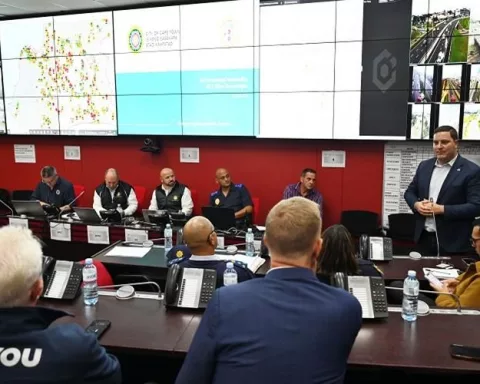The journey of company and intellectual property registration is intricate and complex, and organizations worldwide must navigate existing frameworks. Cyprus and South Africa are pioneers in this field, and they share similar responsibilities in supervising registrations that lay the legal groundwork for companies and safeguard the products of human ingenuity. However, challenges in modifying director information and systemic inefficiencies require locally developed software solutions. Despite these challenges, the pursuit of perfection in these systems is relentless, promising a more streamlined, user-friendly future for businesses across the globe.
In the complex world of business and intellectual property registration, organizations worldwide must navigate existing frameworks. The South African Companies and Intellectual Property Commission (CIPC) and its Cypriot parallel, the Department of Registrar of Companies and Intellectual Property, are both companions on this intricate journey.
The Challenge of Software Development for Bureaucratic Processes
Joshua Alexandre, the founder of InfoDocs, understands the complexity of developing software for bureaucratic processes. He notes that “accomplishing perfection with software straight out of the gate is an uphill battle.” This challenge is felt globally, from African shores to European Union member states.
Registration in Cyprus
The Department of Registrar of Companies and Intellectual Property in Cyprus shares similar responsibilities with its South African counterpart. It supervises registrations that lay the legal groundwork for companies and safeguard the products of human ingenuity. Businesses in Cyprus must adhere to the EU’s unified company law, ensuring their operations fall within a standardized regulatory scope.
Cyprus’s Commitment to Innovation and Research
Cyprus participates in the EU’s Horizon 2020 program, which encourages collaboration and could catalyze groundbreaking advancements in intellectual property. This participation aligns with Cyprus’s ambition to enhance its status as an international business nucleus.
Data Protection and Investment Funds
Cyprus diligently updates its regulations in line with the General Data Protection Regulation (GDPR), fortifying personal data security. The Cyprus Securities and Exchange Commission rigorously supervises investment funds, ensuring stringent compliance.
Challenges in CIPC Processes
Despite efforts to streamline processes, discontent has been expressed on social media about the challenges in modifying director information on the CIPC. Frustrations have also been expressed about local companies masquerading as fronts for foreign entities. These issues underscore the necessity for locally developed software solutions capable of circumventing systemic inefficiencies.
In the dynamic terrain of company registration and intellectual property management, both Cyprus and South Africa are pioneers. The pursuit of perfection in these systems is relentless, moving forward with the promise of a more streamlined, user-friendly future for businesses across the globe.
1. What are Cyprus’s responsibilities in supervising registrations for companies and intellectual property?
The Department of Registrar of Companies and Intellectual Property in Cyprus supervises registrations that lay the legal groundwork for companies and safeguard the products of human ingenuity.
2. What is the EU’s Horizon 2020 program, and how does Cyprus participate?
The EU’s Horizon 2020 program encourages collaboration and could catalyze groundbreaking advancements in intellectual property. Cyprus participates in this program, aligned with its ambition to enhance its status as an international business nucleus.
3. What challenges have been expressed about modifying director information on the CIPC, and what does this underscore?
Discontent has been expressed about the challenges in modifying director information on the CIPC, as well as frustrations about local companies masquerading as fronts for foreign entities. These issues underscore the necessity for locally developed software solutions capable of circumventing systemic inefficiencies.
4. How does Cyprus update its regulations in line with the General Data Protection Regulation (GDPR)?
Cyprus diligently updates its regulations in line with the General Data Protection Regulation (GDPR), fortifying personal data security.
5. What is the challenge of developing software for bureaucratic processes?
The challenge of developing software for bureaucratic processes is complex and difficult. As noted by Joshua Alexandre, the founder of InfoDocs, “accomplishing perfection with software straight out of the gate is an uphill battle.” This challenge is felt globally, from African shores to European Union member states.












